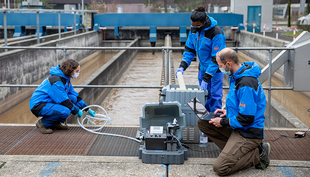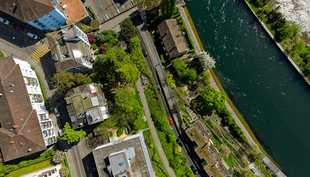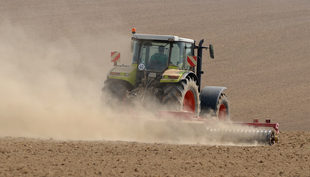Department Urban Water Management

Urban Water Management
We aim to optimize the development and management of the urban water system using process-focused measurement techniques, targeted experiments, and innovative modeling methods. Using a systems approach, we bring together a range of aspects that are intertwined with the urban drainage network. Read more
Urban Water Observatory

The Urban Water Observatory (UWO) is a long-term initiative of ETH and Eawag to establish a sensor network in Fehraltorf, allowing spatially-distributed monitoring of urban water cycle processes. Read more
Eawag-Empa Blue-Green Campus Lab

The Eawag-Empa Blue-Green Campus lab is a research initiative to investigate climate adaptation solutions and foster collaboration between Eawag and Empa. Read more
News
Publications
Nature’s Science in Shorts awards - Lucas Gobatti
"If we want to cool down our cities with vegetation, we need to start planting as soon as possible, because it takes time to get the full cooling benefits of urban greenery"
Paper "Using satellite imagery to investigate Blue-Green Infrastructure establishment time for urban cooling"







